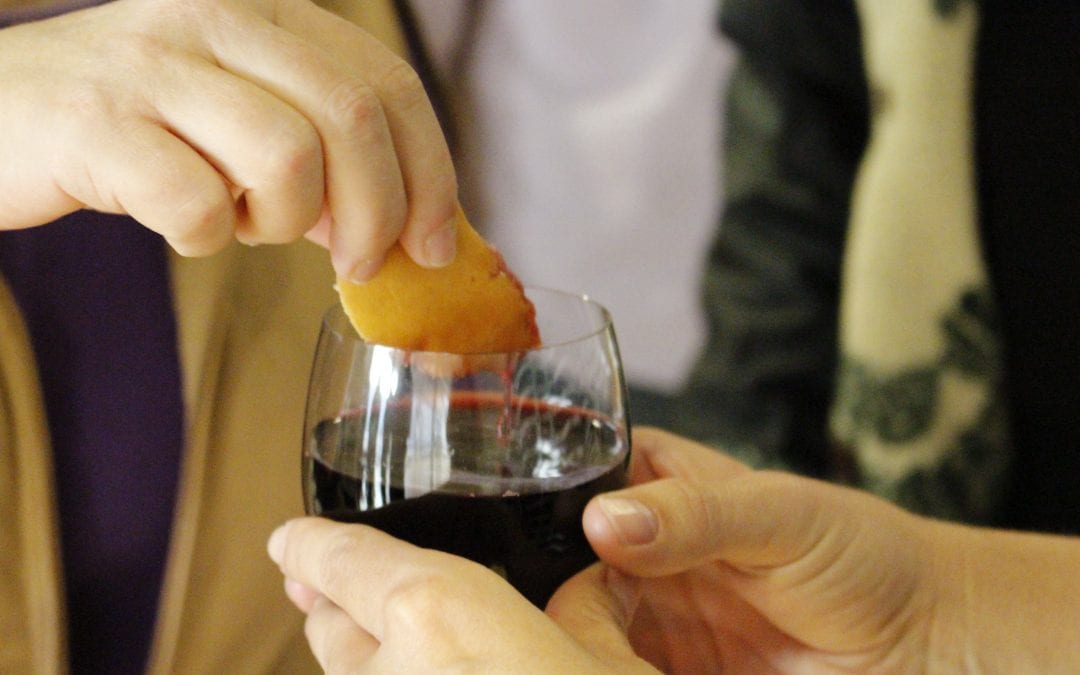This week, I’ve had two conversations with people in our congregation about politics. Both of these folks are highly active in our church, serve faithfully, and love Jesus deeply. Yet these two people had dramatically differing political views. In the same church, with the same mission… but seeing some of the issues of our day from two very different places.
How can this be? How can one church be populated by people who see the world in such different ways? Some days, if I’m honest, this seems impossible. The volume of outrage that surrounds us on a daily basis, combined with the polarizing perspectives we are given to choose from, make unity and compassion seem unattainable. We are taught by our culture to hate our enemies, not love them. Every single day, we are discipled to divide. To draw lines. To shout down conversation. To write those people off.
In the 1970’s, Christian missiologist Lesslie Newbigin warned that as the world grew more and more secular, Western civilization would find their identity less and less in churches and communities of faith. And with that loss of identity, they would turn to their political parties as a source of identity and hope. In a way, these parties would become the new expression of religion for a secular world.
I believe we are seeing this play out right before our eyes. With the growing rejection of institutions of faith, the two fastest growing religions in America are Republican and Democrat. Many people – even those who profess faith and allegiance to Jesus, show by their language and actions to be converts to these political religions. Hope and identity has left the Kingdom of God and moved into an idealized kingdom of America.
It is certainly not wrong to vote and have political views for a particular party. But when our vote and our opinion bear more of our hope and identity than Jesus and his kingdom, we have lost our way. And one of the clearest ways we see that shift in hope is in our unwillingness to “make every effort to keep the unity of the Spirit through the bond of peace (Eph. 4:3).”
In the kingdom of Christ, unity is one of the clearest pictures to the world of what our God is like (John 17:23). Yet unity is not uniformity. It is not looking and acting and speaking and voting alike. Unity is the hard work of loving our neighbor as ourself, and sometimes loving our enemies in the way we were taught by Jesus.
Unity is also not the absence of conflict. There will be hard conversations, tough questions, and opposing view points. We may agree to disagree. But followers of Jesus are more concerned with being reconciled than being right. We are more bonded in Christ than we are divided in politics. I may not be able to meet you at the ballot box, but I can meet you are Jesus. I can meet you at the cross. I can meet you at the Table.
That’s why every Sunday we get to witness a full-on, earth-shattering miracle. As we walk forward to partake in the body and blood of Jesus for communion, we are sharing a meal alongside someone that, outside the kingdom of God, we would be separated from. Democrats and republicans, conservatives and liberals, taking communion together, side by side. Unity in Jesus is a miracle, and just as Paul tells us in Ephesians, it takes us making “every effort.”
This is what separates the kingdom of Jesus from the kingdom of America. America is discipling us to divide. Jesus is discipling us to unite, not around what we can agree on, but on our common need of grace. We are no better than those we disagree with. All of us – democrat, republican, and everything in between – come to the Table with a common need for the grace of God to transform our lives.
The question for all of us in this tumultuous season is clear: will our relationships with those who we disagree with be more defined by the divisiveness of America or by the unity of the kingdom of God? We have an incredible opportunity in these times to show the love of Jesus in an astounding way to our world – even when we disagree, we are family because of what Jesus has done. And that’s good news.

